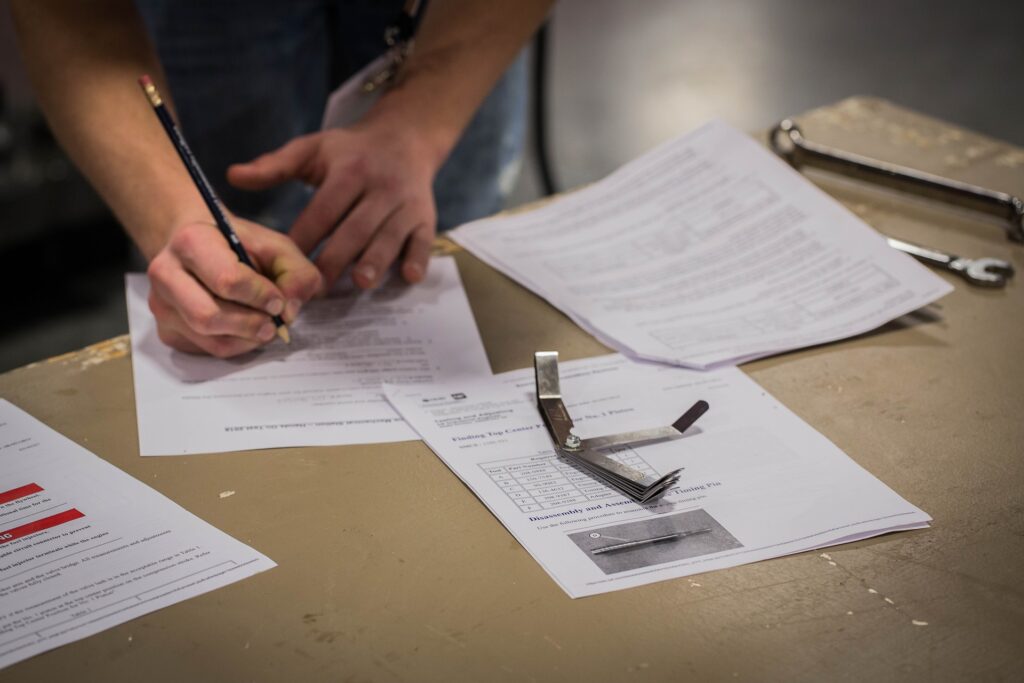
Most Canadians and Americans think they don’t need to report their cryptocurrency dealings.
Here is what you need to know about cryptocurrency and taxes.
International Tax Coalition Targeting Cryptocurrency
It is important to understand cryptocurrency conditions, tax laws and reporting. In 2018, Canada Revenue Agency (CRA) and the United States Internal Revenue Service (IRS) put together their resources to expose cryptocurrency users who avoided their tax duties. Both CRA and IRS and other tax administrators have worked on strategies. This allows them to identify cryptocurrency users for tax audit or prosecute them for tax evasion. In 2019, several Canadian cryptocurrency users surprised to receive a 13-page CRA questionnaire. This questionnaire asked them about their cryptocurrency transactions. In the United States, the IRS has managed to complete one digital currency exchange to turn over its users account information. In the 2020 individual income-tax return it openly asks taxpayers to disclose any earning in virtual currency.
Tax authorities such as the CRA and IRS have expanded efforts to criminally prosecute those who evade taxes by using cryptocurrencies.
International Cooperation Allowing the Canada Revenue Agency to Identify Canadian Cryptocurrency Traders and Investors: The Joint Chiefs of Global Tax Enforcement (J5)
The Joint Chiefs of Global Tax Enforcement (J5) is a global operational group, which was formed in 2018 aimed at investigating cryptocurrency- related tax evasion and money laundering. On July 3rd, 2018, the CRA joined the Joint Chiefs of Global Tax Enforcement (J5). Other tax administrators in the Joint Chiefs of Global Tax Enforcement (J5) include Australia, the Netherlands, the United Kingdom, and the United States of America. J5 has been able to gain insight on cryptocurrency transactions involving taxpayers in Canada, Australia, the Netherlands, the United Kingdom, and the United States of America.
The J5’s mandate closely looks on information sharing and joint investigations that center around the challenges that cryptocurrencies present for tax administrators in its member countries. The J5 looks to uncover taxpayer’s unreported income and assets from holding in Bitcoin SV (BSV), Tether (USDT), Monero (XMR), EOS, Binance Coin (BNB), and other cryptocurrencies, such as Facebook’s soon-to-be-released Libra (LIBRA).
Resources and Inspiration from Advancement by the IRS
The IRS has progressed on pursuing sources of information about cryptocurrency transactions. The IRS was able to get a court order requiring the virtual-currency exchange, Coinbase. Coinbase was required to submit information about any user whose account had “at least the equivalent of $20, 000 any one transaction type (buy, sell, send or receive) in any one year during the 2013 to 2015 period”. For accounts meeting that description, IRS was able to receive the account user’s name, tax payer ID, birth date, address and records of account activity.
The IRS and the Canada Revenue Agency, and other tax administrators do not have any trouble tracing transactions that involve mainstream cryptocurrencies such as Bitcoin. Bitcoin’s open ledger blockchain system gives tax authorities to identify users with ease. The IRS has been vigorously using tools to investigate transactions involving the following:
- privacy coins—e.g., Monero (XRM), Zcash (ZEC), Dash (DASH), Grin (GRIN), Komodo (KMD), Verge (XVG), Horizon (ZEN);
- Layer 2 off-chain protocol networks—e.g., Lightning Network (LN), Raiden Network, Celer Network; and
- Side-chains—e.g., Plasma and OmiseGo.
The IRS has offered up to $1 million to any developer that creates tracking technology for privacy-focused cryptocurrencies and new blockchain tech,
As mentioned, the IRS has made it mandatory for US taxpayers to report any cryptocurrency usage. In 2020, the US individual income tax return (form 1040) requires taxpayers to release their cryptocurrency dealings. US taxpayers will see the following question, which can be found under the address line their form 1040: “at any time during 2020, did you receive sell, send, exchange, or otherwise acquire any financial interest in any virtual currency?” In 2019, the IRS did include a cryptocurrency related question, but on an additional income form, which many Americans did not submit. On October 6th, 2020, anti-virus software entrepreneur John McAfee made the headlines for cryptocurrency and tax evasion. John McAfee was arrested in Spain for tax-evasion charges that he faced in the United States. He failed to file tax returns for four years from 2014-2018 and yet earned millions from several ventures including cryptocurrency trading. The US Justice Department claims that John McAfee did not file his taxes by routing his income to cryptocurrency-exchange accounts in the names of nominees.
The Canada Revenue agency has certainly been inspired by the IRS’S advancements to identify, tax audit, and prosecute Canadian cryptocurrency users. It is soon to be expected that the CRA will take the IRS’S lead and require Canadian taxpayers to disclose any cryptocurrency dealings. The IRS shares taxpayer information with the CRA because of their participation in both the J5 and the Canada-US Tax Treaty. In Article XXVII the treaty requires the United States of American and Canada to exchange any information that could be important to enforcing either country’s tax laws. This has been beneficial to the Canada Revenue Agency as it has helped them identify Canadian taxpayers for cryptocurrency audits.
The CRA’S Cryptocurrency Tax-Audit Questionnaire

The CRA usually begins a tax audit process by issuing a letter notifying the taxpayer about the pending audit, the tax years, or reporting periods under audit, and the general subject matter of the audit.
These letters frequently include an initial questionnaire. It is important to know that if you are selected for a CRA cryptocurrency tax audit, Canadian taxpayers receive a 13-page cryptocurrency-audit questionnaire. This questionnaire includes over 50 questions on various topics such as the following:
- The timeline of owing or using cryptocurrency;
- The source of the cryptocurrencies purchased;
- The use of third-party exchange wallets;
- The source of funds used to purchase cryptocurrency;
- Transaction record-keeping practices of the taxpayer;
- Participation in initial coin offerings (ICOs);
- Whether any cryptocurrency holdings generate passive income for the taxpayer (e.g., Node, Masternodes, Supernodes, etc.);
- Participation in cryptocurrency mining (including questions about the sort of mining hardware used and energy expenses related to mining);
- Acceptance of cryptocurrency as payment for goods or services;
- The frequency of cryptocurrency transactions; and
- The time spent studying cryptocurrency markets.
The taxpayer has to turn over their bank-account statements and any other records that the CRA or tax auditor may need to verify the taxpayer’s answers.
Pro Tax Tips: Record-Keeping, Legal Opinion on Proper Cryptocurrency Tax Reporting, Voluntary Disclosures Program for Unreported Cryptocurrency Income and Solicitor-Client Privilege
Any taxpayer who does not provide appropriate records will do poorly during a CRA cryptocurrency tax audit. It is important for cryptocurrency traders and investors to keep records of their cryptocurrency transactions. Any business that accepts cryptocurrency as a method of payment for goods and services shall do the same.
Cryptocurrency users should regularly export their transaction information to avoid losing it. For instance, many taxpayers lost all their records with the bankruptcy of Quadriga.
The following records should be maintained by cryptocurrency users about their cryptocurrency transactions:
- The date of each transaction;
- Any receipts for purchasing or transferring cryptocurrency;
- The value of the cryptocurrency in Canadian dollars at the time of the transaction;
- The digital-wallet records and cryptocurrency addresses;
- A description of the transaction and of the other party (e.g., the other party’s cryptocurrency address);
- The exchange records;
- Records relating to any accounting and legal costs; and
- Records relating to any software costs for managing your tax affairs.
The following records should also be kept in addition to your cryptocurrency-transactions if you mine cryptocurrency:
- Receipts for purchasing cryptocurrency-mining hardware;
- Receipts for expenses associated with your cryptocurrency-mining operation (e.g., power costs, mining-pool fees, maintenance costs);
- Records about your cryptocurrency-mining operation (e.g., hardware specifications, hardware operation time); and
- The mining pool details and records.
There are Certified Specialist Canadian tax lawyers that provide advice about record-keeping and proper reporting of your cryptocurrency profits. This way the CRA cannot fault you for misrepresenting the information in your tax returns.
A tax memorandum is a memo which is written to inform others of the answers to tax questions which can help cryptocurrency users. You will be able to determine whether your cryptocurrency profits should be reported as capital gains or as a business income or as both. It is essential to keep in mind that an intermediate transaction such as the purchase of Bitcoin, which is used to purchase a different currency, can give a rise to taxable transaction.
It is important to know that if you file your tax returns and you failed to report your cryptocurrency profits, you risk facing not only civil monetary penalties, such as gross-negligence penalties, but also criminal liability for tax evasion. This should be a concern for Canadian taxpayers with any unreported profits from cryptocurrency transactions.
There is a Voluntary Disclosures Program (VDP) that many people can qualify for grants relief. If your VDP application qualifies, the CRA will renounce criminal prosecution and waive gross- negligence penalties, which may reduce interest. It is important to know that the VDP application does require time. Your application may be rejected unless the application is “voluntary”. What this means is that the VDP should receive your voluntary disclosure application before the CRA contacts you about the non-compliance you wanted to disclose. You may get a Canadian tax lawyer that help many Canadians deal with cryptocurrency and they can help you prepare and plan your voluntary disclosure application. Having a proper application prepared will give you a better chance that the CRA will accept your disclosure. It will also lay the groundwork for judicial review application to the Federal Court should the CRA deny your disclosure.
If you want to find out more information about how you can qualify for the Voluntary Disclosures Program set up a confidential and privileged consultation with one of our expert Canadian tax lawyers. Solicitor-client privilege avoids the CRA from learning about any legal advice you have gotten from your tax lawyer. Keep in mind that any communication with your accountant remains unprotected. If you want advice about your taxes, but do not want the CRA to have that information, you should seek a Canadian tax lawyer first. If you need an accountant, your tax lawyer can get the accountant on your behalf and get the privilege.